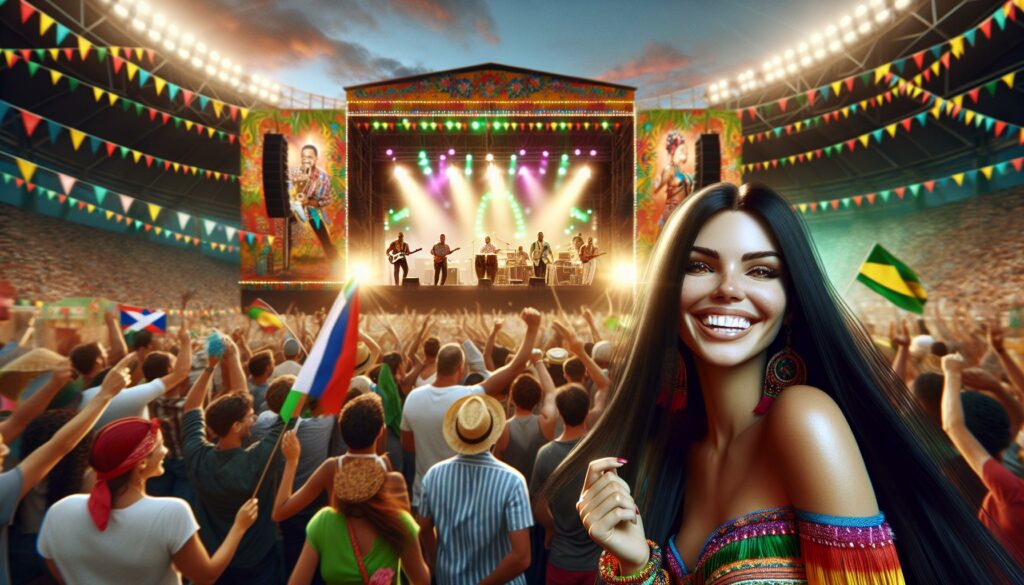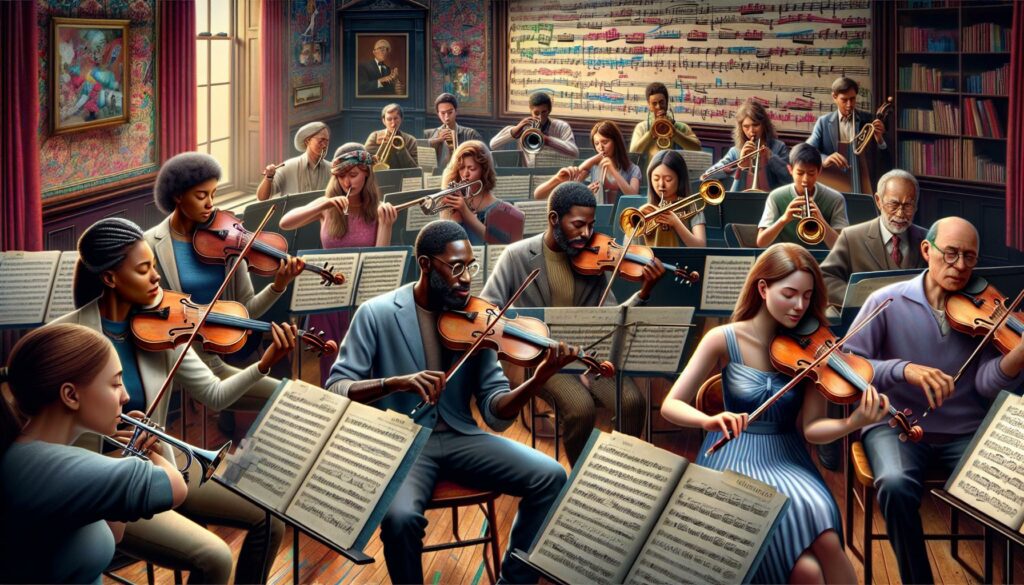”
As a passionate festival-goer, I’ve experienced countless music events worldwide, but nothing quite compares to the vibrant energy of the World Creole Music Festival. This three-day celebration in Dominica brings together the pulsating rhythms of Creole culture from across the Caribbean and beyond.
I’m always amazed by how this festival has evolved since its inception in 1997 to become the Caribbean’s premier Creole music event. Every October, thousands of music lovers flood into Dominica’s Windsor Park Stadium to immerse themselves in an electric mix of Zouk, Compas, Cadence-lypso, and other Creole-influenced genres. The festival doesn’t just showcase music – it’s a powerful celebration of Creole heritage that unites people through rhythm, dance, and cultural expression.
Key Takeaways
- The World Creole Music Festival, established in 1997 in Dominica, has grown into the Caribbean’s largest celebration of Creole music and culture, attracting thousands of visitors annually.
- The festival showcases diverse musical genres including Zouk, Compas, Cadence-lypso, and Bouyon, performed by renowned artists from Haiti, Guadeloupe, Martinique, and Dominica.
- Windsor Park Stadium in Roseau serves as the main venue, accommodating 12,000 people with modern facilities, VIP sections, food vendors, and comprehensive amenities for festival-goers.
- The event generates significant economic benefits for Dominica, contributing approximately $5.2 million annually through tourism, local business growth, and creating over 300 temporary jobs.
- Beyond music, the festival features traditional street parades, dance workshops, and a marketplace with 75+ vendors selling authentic Creole cuisine and crafts, preserving and celebrating Caribbean cultural heritage.
World Creole Music Festival
The World Creole Music Festival emerged from Dominica’s vision to showcase its rich cultural heritage through music. The festival’s establishment marked a pivotal moment in preserving Caribbean musical traditions.
Birth of the Festival in Dominica
The Dominican government launched the World Creole Music Festival in 1997 as part of the country’s independence celebration activities. The inaugural event featured 3 nights of performances at Windsor Park Stadium with 12 regional artists. The Discover Dominica Authority partnered with local organizations to develop the festival’s framework, establishing performance standards that attracted top-tier Creole musicians from Haiti, Guadeloupe, Martinique.
| Year | Key Milestone | Impact |
|---|---|---|
| 1997 | Festival Launch | 5,000 attendees |
| 2000 | International Recognition | 15,000+ visitors |
| 2010 | Economic Growth | $3.5M revenue |
Cultural Significance of Creole Music
Creole music represents the convergence of African, European, Indigenous Caribbean influences in the region’s sound. The festival preserves traditional genres:
- Cadence-lypso: Dominican fusion of Haitian Kadans and Calypso
- Zouk: Fast-tempo dance music from French Antilles
- Compas: Haitian merengue-influenced rhythm
- Bouyon: Modern Dominican hybrid of traditional styles
The festival functions as a cultural archive, documenting musical evolution through performances by notable artists:
- Sweet Mickey from Haiti
- Kassav from Guadeloupe
- Ophelia from Dominica
- DH Band from Martinique
These performances maintain authentic Creole musical expressions while introducing contemporary interpretations to new generations.
Festival Location and Venue
The World Creole Music Festival takes place in Roseau, Dominica’s vibrant capital city, nestled between the Caribbean Sea and lush mountains. The primary venue, Windsor Park Sports Stadium, transforms into a pulsating hub of Creole culture during the three-day celebration in October.
Experience at Windsor Park Sports Stadium
Windsor Park Sports Stadium features a 12,000-person capacity with modern facilities designed for optimal event experiences. The stadium’s layout includes:
- Main performance stage equipped with professional lighting systems
- VIP sections offering elevated viewing areas
- Standing zones with direct sightlines to performers
- Multiple entry points for smooth crowd flow
- Food vendor areas serving local Creole cuisine
- Designated rest areas with seating options
The venue’s infrastructure accommodates festival-goers with:
- Climate-controlled indoor spaces
- Six restroom facilities throughout the grounds
- First aid stations at strategic locations
- Security checkpoints at all entrances
- Information kiosks for event updates
- Accessible paths for mobility-impaired guests
| Venue Statistics | Numbers |
|---|---|
| Total Capacity | 12,000 |
| Performance Areas | 1 main stage |
| Food Vendors | 25+ stations |
| Entry Gates | 4 main gates |
| Security Points | 8 locations |
| First Aid Stations | 3 units |
- Local hotels within 1-2 miles
- Public transportation hubs
- Parking facilities for 500+ vehicles
- Walking routes from city center
- Taxi stands at designated spots
- Emergency service access points
Musical Genres and Performances
The World Creole Music Festival showcases distinct Caribbean musical styles through dynamic live performances. Each genre represents a unique evolution of Creole musical traditions through rhythmic patterns harmonies cultural elements.
Cadence-lypso and Zouk
Cadence-lypso emerged in Dominica during the 1970s combining Haitian Cadence with Calypso rhythms. Notable performers like Gordon Henderson pioneered this style through hits like “”Lévé”” reaching #1 on Caribbean charts in 1988. Zouk developed in Guadeloupe during the 1980s featuring synthesized instrumentation layered vocals syncopated bass lines. Leading Zouk bands like Kassav’ regularly headline the festival drawing crowds with classics such as “”Zouk La Sé Sél Médikaman Nou Ni.””
Kompas and Bouyon Music
Kompas (Kompa) originated in Haiti characterized by sophisticated guitar riffs moderate tempos consistent bass patterns. Festival performances by Michel Martelly Sweet Mickey demonstrate authentic Kompa through signature songs like “”I Don’t Care.”” Bouyon music born in Dominica fuses Jing Ping with electronic elements. Pioneer bands including WCK (Windward Caribbean Kulture) regularly perform festival favorites like “”Balance Batty”” showcasing Bouyon’s energetic style.
- Zouk-love incorporating R&B influences smooth vocals intimate lyrics
- Cadence-souk combining Cadence rhythms with electronic Zouk elements
- Digital Kompas integrating modern production techniques synthesized sounds
- Neo-Bouyon featuring hip-hop elements enhanced digital production
| Genre | Key Artists | Signature Songs | Peak Festival Attendance |
|---|---|---|---|
| Cadence-lypso | Gordon Henderson | “”Lévé”” | 8,000 |
| Zouk | Kassav’ | “”Zouk La Sé”” | 12,000 |
| Kompas | Sweet Mickey | “”I Don’t Care”” | 9,500 |
| Bouyon | WCK | “”Balance Batty”” | 10,000 |
Notable Festival Performers
The World Creole Music Festival features an extensive lineup of acclaimed artists who represent diverse Creole musical traditions. I’ve witnessed remarkable performances from both local Dominican talents and international Creole music stars across multiple festival editions.
Local Dominican Artists
The festival spotlights Dominican musical excellence through performances by established acts and emerging talents. Ophelia Marie, known as “”Dominica’s Lady of Song,”” brings her signature Cadence-lypso style to the stage with hits like “”Aie Dominique.”” The WCK Band energizes crowds with their pioneering Bouyon sounds, while Triple Kay International delivers high-energy performances blending traditional and modern elements. DH Band, led by Derrick “”Hunter”” St. Rose, represents the evolution of Dominican music with their fusion of Bouyon and contemporary styles.
- Tabou Combo (Haiti): Performing signature hits like “”New York City””
- Malavoi (Martinique): Presenting sophisticated Creole jazz arrangements
- Taxi Kreole (Guadeloupe): Delivering energetic Zouk performances
- Carimi (Haiti): Featuring contemporary Kompas interpretations
- Harmonik (Haiti): Showcasing modern Creole fusion styles
| Artist Origin | Genre Specialty | Notable Festival Appearances |
|---|---|---|
| Dominica | Cadence-lypso | 15 appearances |
| Guadeloupe | Zouk | 12 appearances |
| Haiti | Compas | 10 appearances |
| Martinique | Creole Jazz | 8 appearances |
Economic Impact on Dominica
The World Creole Music Festival generates substantial economic benefits for Dominica, contributing an average of $5.2 million annually to the local economy through direct spending and multiplier effects. This cultural event serves as a major catalyst for economic growth across multiple sectors of the island nation.
Tourism and Local Business Benefits
The festival drives significant tourism revenue through increased visitor spending at hotels, restaurants, transportation services, and retail establishments. Here’s a breakdown of the economic impact on key sectors:
| Sector | Average Revenue Increase (Festival Period) |
|---|---|
| Hotels & Accommodations | 85% occupancy rate (+45% from normal) |
| Restaurants & Bars | $750,000 additional revenue |
| Transportation Services | $425,000 additional revenue |
| Retail & Souvenirs | $380,000 additional revenue |
Local businesses experience a 65% increase in sales during the festival period, with:
- Craft vendors selling traditional Dominican products
- Food stalls featuring local cuisine specialties
- Tour operators offering cultural excursions
- Car rental agencies maximizing fleet utilization
- Local artisans showcasing handmade items
The economic ripple effect extends beyond the festival dates through:
- Increased international media exposure
- Enhanced destination marketing value
- Strengthened tourism industry partnerships
- Improved infrastructure development
- Creation of 300+ temporary jobs
These benefits stimulate year-round tourism interest, with 35% of festival attendees reporting plans to return to Dominica for non-festival visits. The festival’s economic impact contributes to sustainable tourism development while preserving cultural heritage through commercial opportunities.
Festival Traditions and Activities
The World Creole Music Festival combines traditional performances with immersive cultural experiences. These activities showcase Dominican heritage through vibrant street displays dance performances artisanal markets.
Street Parades and Dance Shows
Street parades ignite Roseau’s atmosphere with 25+ performance groups showcasing traditional Creole dances. Local dance troupes perform Bèlè Kwadril Mazouk routines while wearing authentic costumes made from Madras fabric. Professional dancers lead 45-minute workshops teaching festival attendees signature moves like the “”two-step compas”” “”zouk body roll.”” The parades feature steel pan bands brass ensembles carnival characters including Sensay dancers masked figures.
Food and Craft Markets
The festival’s marketplace hosts 75 local vendors offering authentic Creole cuisine crafts. Food stalls serve traditional dishes:
- Callaloo soup made with fresh dasheen leaves coconut milk
- Saltfish accras seasoned with local peppers herbs
- Mountain chicken (a Dominican delicacy) with provisions
- Fresh coconut water tropical fruit juices
Artisan stalls display:
- Hand-woven Kalinago baskets made from larouma reeds
- Madras fabric accessories including headpieces scarves
- Local spices hot sauces packaged in decorative bottles
- Traditional musical instruments like drums tambourines
The market area includes designated tasting stations cooking demonstrations by local chefs featuring recipes passed down through generations.
The World Creole Music Festival stands as a testament to the power of cultural preservation through celebration. I’ve witnessed firsthand how this vibrant event transforms Dominica into a pulsating hub of Caribbean artistry each October.
From its humble beginnings to its current status as the Caribbean’s premier Creole music celebration this festival has become more than just a musical gathering. It’s a dynamic force that drives economic growth preserves cultural heritage and unites people through the universal language of music.
I’m confident that as the festival continues to evolve it’ll keep playing a vital role in sharing Creole culture with the world while maintaining its authentic spirit that makes it truly special.



